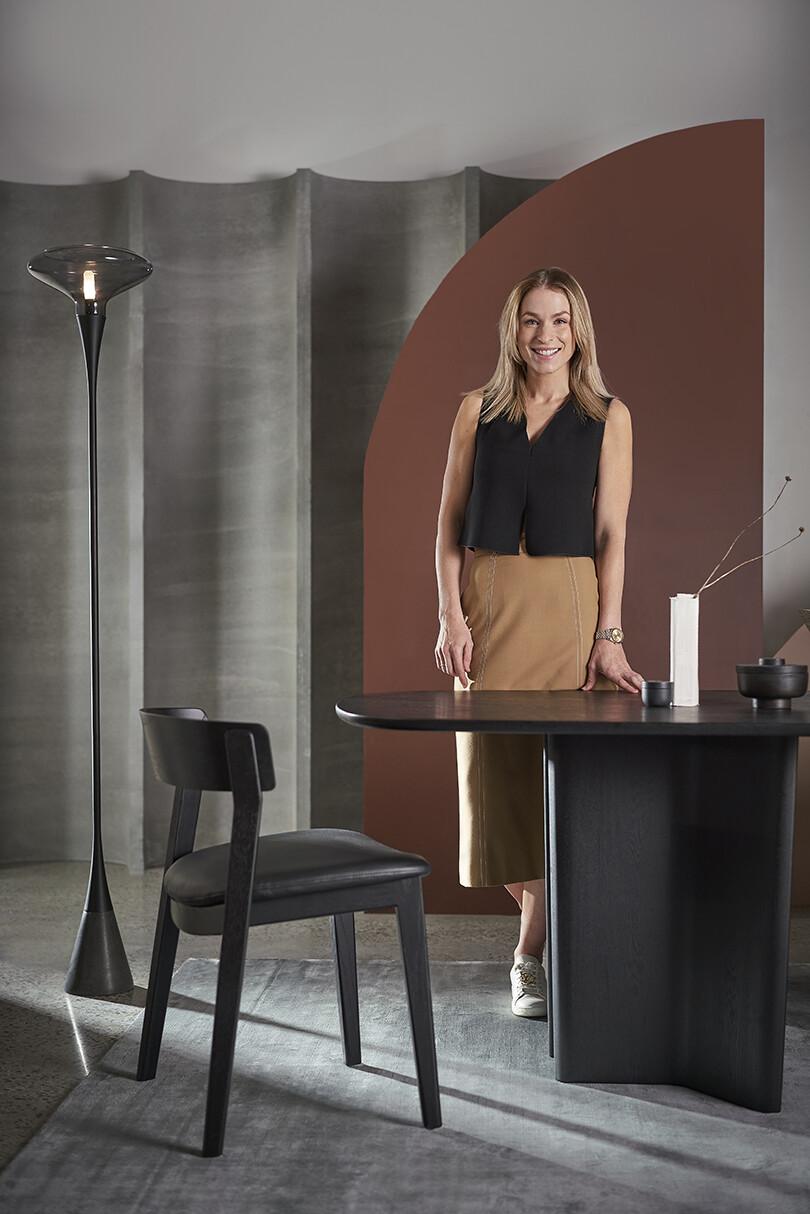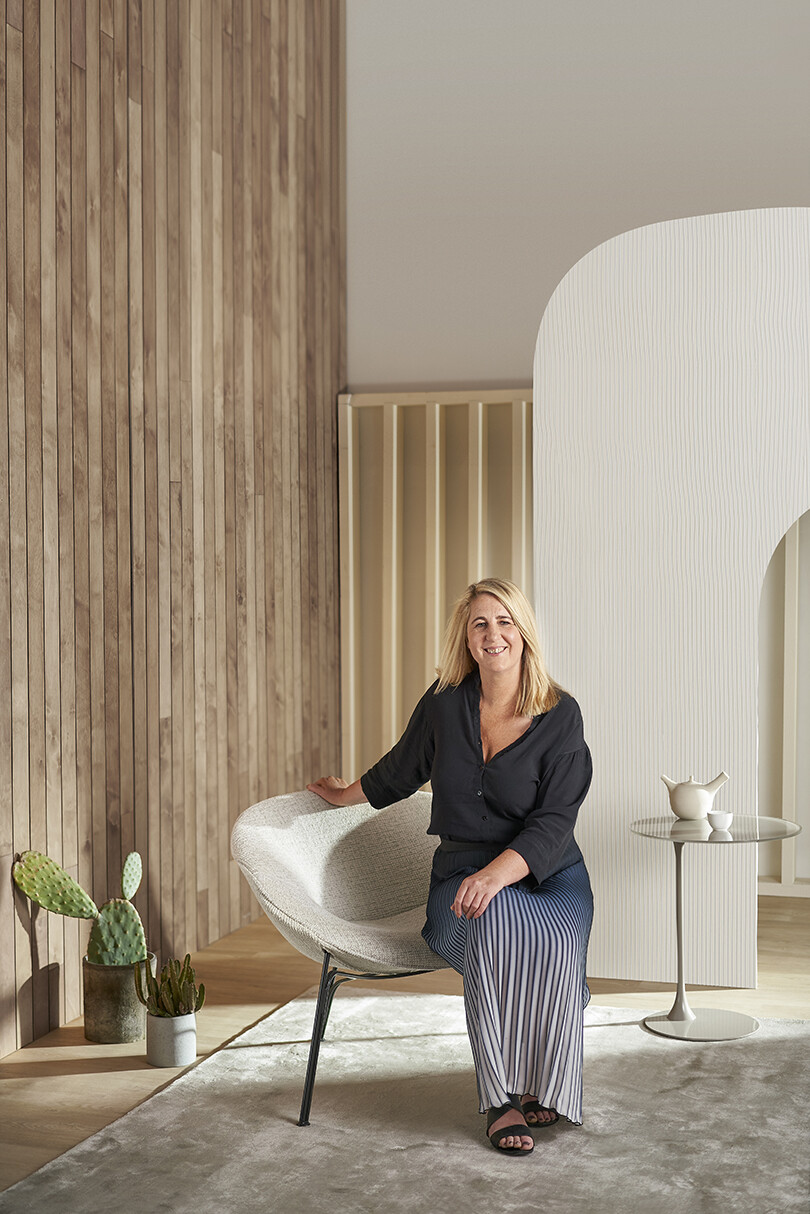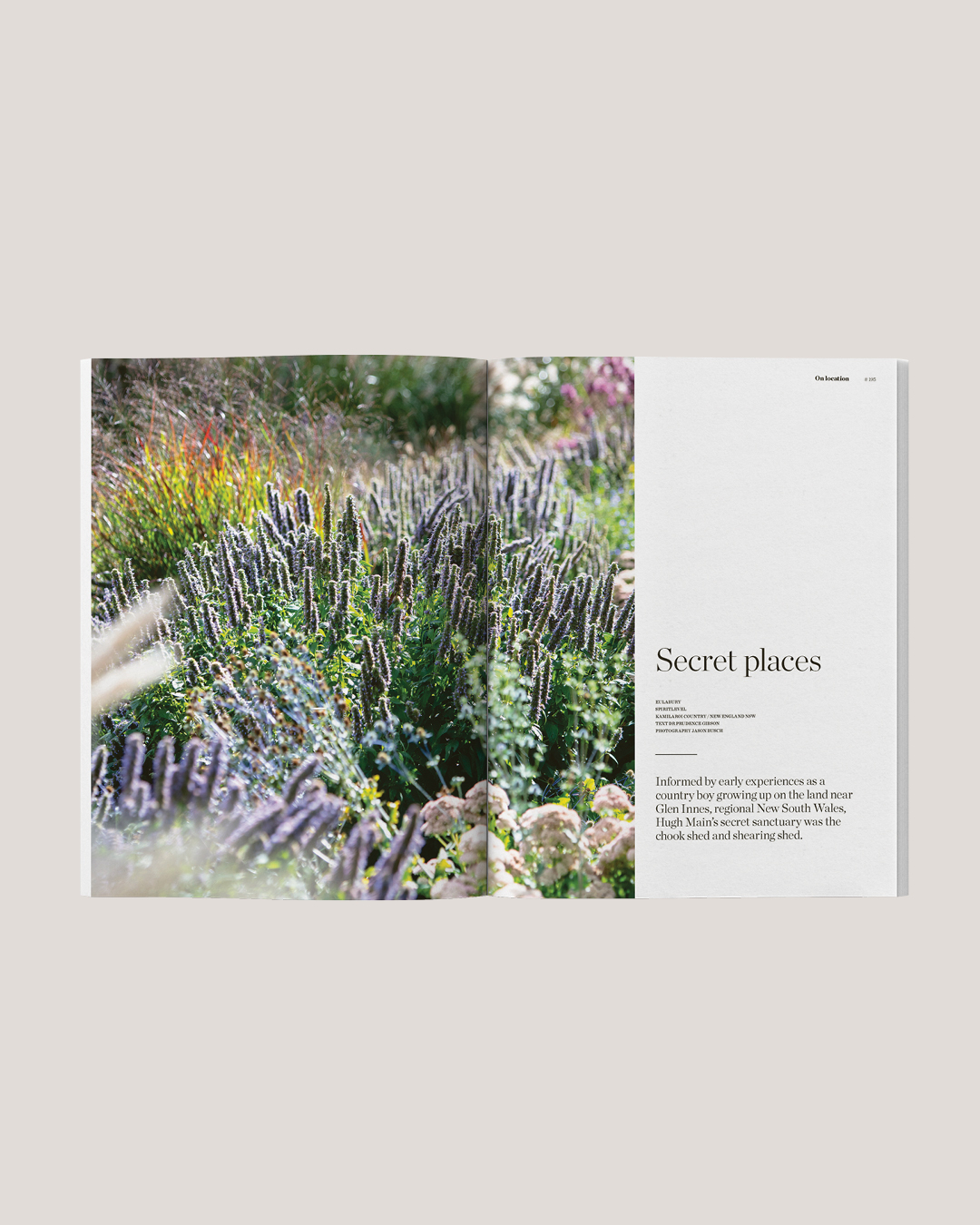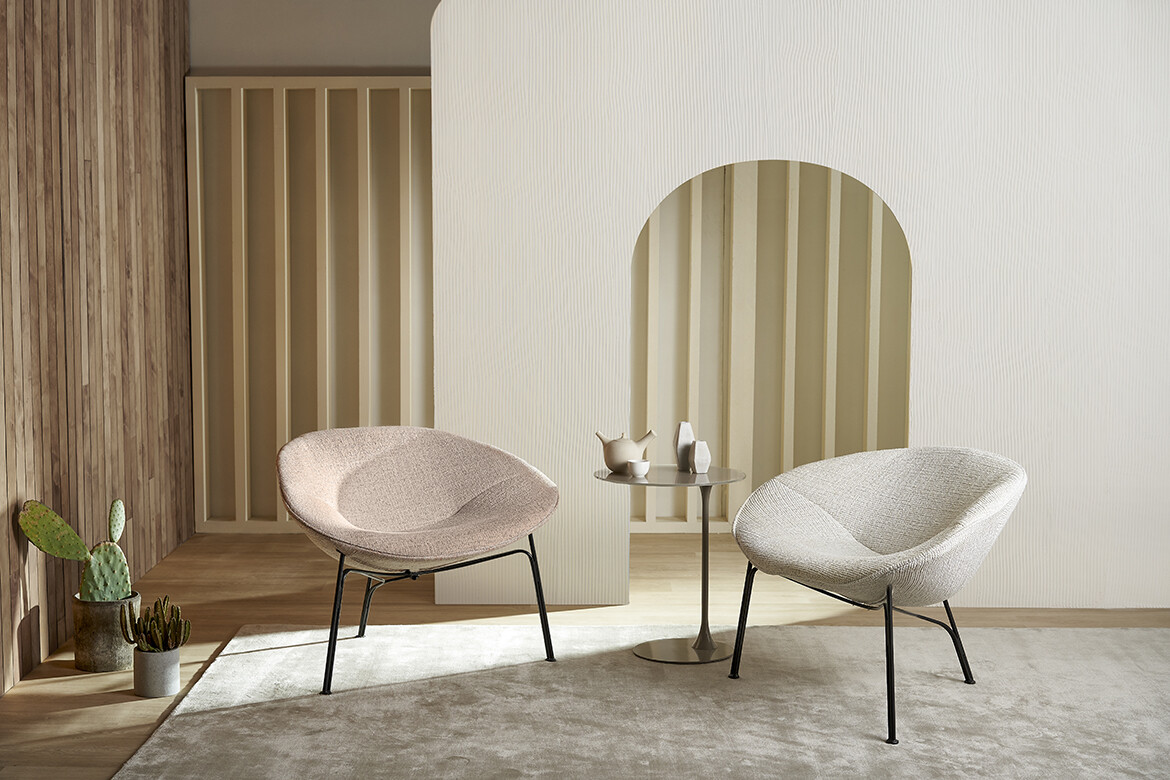In a world of surfaces and slogans, integrity is one of the most desirable of qualities. It is that inherent sense of fairness, planetary kindness and humanistic ethos that gives an item an added allure and value. King has always held strongly to principles in design, manufacture and lifetime stewardship in everything it creates. According to David Hardwick global head of product at King, his personal ethics align with and inform the ethics of King design.
The humanist approach means being thoughtful about what the company is bringing into the world, he explains. It also shapes how the company manages the practical dimensions of materiality, making and client relationships. “Our sense of responsibility for bringing something onto this planet is that it must enhance the lives of people. We have always had that approach. It is a great responsibility, and we never absolve ourselves of it,” he says.
For Tom Mark Henry’s Jade Nottage, the ethical side is multi-faceted and is an important element in terms of transparency with clients. Visible and tangible ethical considerations validate the studio’s trustworthiness, Nottage says. “It is a driving force, and an important part of who we are as a business.”
Some of the general credentials she looks for include FSC certification for timbers, recycled content in carpets and other fabrics, and supplier end-of-life take-back programs. The studio is committed to being across these factors, and as a designer, Nottage says knowing materials will be taken back is a tangible positive. “We are always looking to improve on that. As designers, we are never stagnant [in our choices].
“We like to know where things are coming from and have a sense of their lifecycle. Most of the time, when we are looking for new suppliers and products, we know that many clients will also want to see the ethical or sustainability certificates products come with.”
King takes a lifecycle perspective of its products, with a commitment to ongoing stewardship. A piece may have left its premises, but it never leaves the company’s orbit of concern. No matter how long it has been used and loved, it can be restored or repaired. And if it really has reached the end of useful life after several decades, they have a policy of always taking back products, disassembling them and returning the materials to the wider supply chain via recycling.

What is learned from feedback and from the recovery of products also nourishes the design process, Hardwick explains. There is always learning, improvement and further innovation. The ethics of making – fair labour practices and honouring the value of diversity – is also part of this ethical framework.
While design, detailing, repair and management are based onshore in Australia, the majority of manufacturing occurs in the company’s wholly-owned manufacturing facility in Shanghai. The level of staff loyalty and the depth of experience and skill in the workforce is something King takes great pride in. “People stay with us because they love what the brand stands for,” Hardwick says.
The Australian design and workshops teams include people from cultural backgrounds spanning the globe, and Hardwick says this has evolved organically. These different attitudes and approaches bring innovation, richness and new ways of seeing that evolve the King Collections in innovative ways. The company also has people of diverse ability, and team members still working well past retirement age, because the value of their experience is cherished.
“It is just our attitude,” Hardwick says. “We are still a family business, and we bring those family values into the company.”

Longevity is one of the fundamental elements of good, ethical design, says Sophie Solomon of SSD Studio. “The way I design interiors is quite a loose fit. I like it to be timeless, so it doesn’t have to be redone.”
Solomon explains that having to deconstruct and reconstruct a major room like a kitchen every few years because trends changed, or the lifestyle of the inhabitants changed is not sustainable. She begins by asking people about the way they envisage their lives unfolding. Designing for change and spaces that can evolve aligns with environmental considerations and is “fundamental”.
Solomon looks for materials that are durable, and thoughtfully considers ergonomics and practicality in spatial planning and in details such as skirting boards and additional storage. This emphasis on the practical is balanced by the element of beauty.
“I like the French style of blending elegant pieces with different textures,” she says. “That is why the words ‘timeless’ and ‘longevity’ resonate for me. It is about quality over quantity, and things that last are really important.”
King
kingliving.com.au
SSD Studio
ssdstudio.com.au
Tom Mark Henry
tommarkhenry.studio

